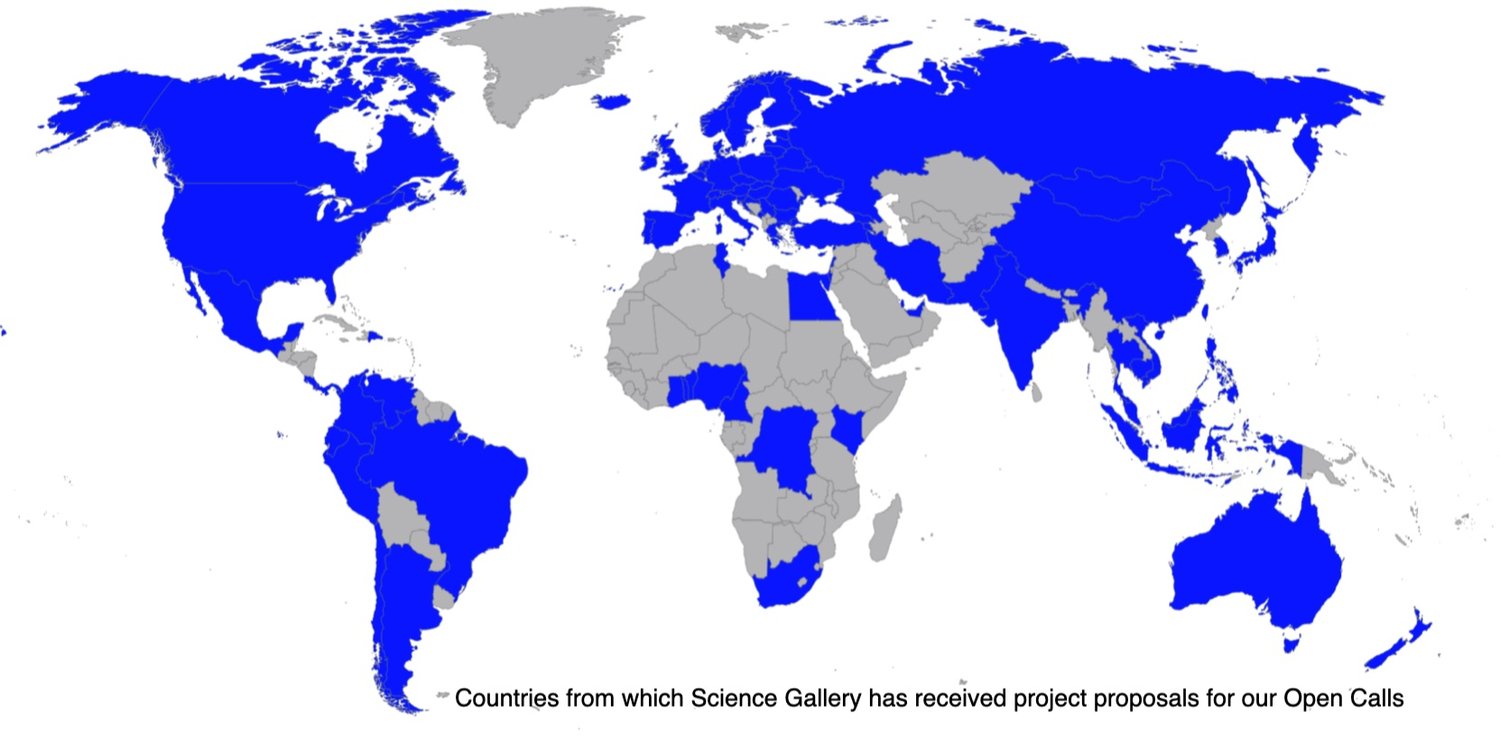Science Gallery
There are presently no open calls for submissions.
Science Gallery Network
Bringing science, art, technology and design together, Science Gallery delivers unique, transdisciplinary exhibitions, events and educational programmes that engage millions of inquiring minds every year in connective, participative, and surprising ways.
The Science Gallery Network is an international collaboration of leading universities dedicated to public engagement through interdisciplinary art-science initiatives. As a Network, we seek to change the world through youth-led perspectives, igniting conversations and collaborations, and support young people to find connection, hope and agency through curiosity and creativity. We will achieve this as a global platform with a critical mass of public venues and digital spaces engaging millions of people.

Open calls
Each open call runs for 5 - 6 weeks. Ready your submission at least a few days before the deadline to ensure you have no technical difficulties and can have any queries answered in advance. The submission form closes automatically on the last day, and late submissions will not be accepted.
Most open C lls are run by individual locations in the Network (Atlanta, Bengaluru, Berlin, Dublin, London, Melbourne and Monterrey). Be sure to reach out directly to the correct location that has launched the call for any queries about their process. If the call is run by multiple locations simultaneously, a specific contact will be provided on the call page. Contact information for questions can always be found on an individual Open Call page. Review process dates are clearly published, and results are communicated shortly thereafter.
Technical difficulties with the application forms should be addressed to Submittable directly.
